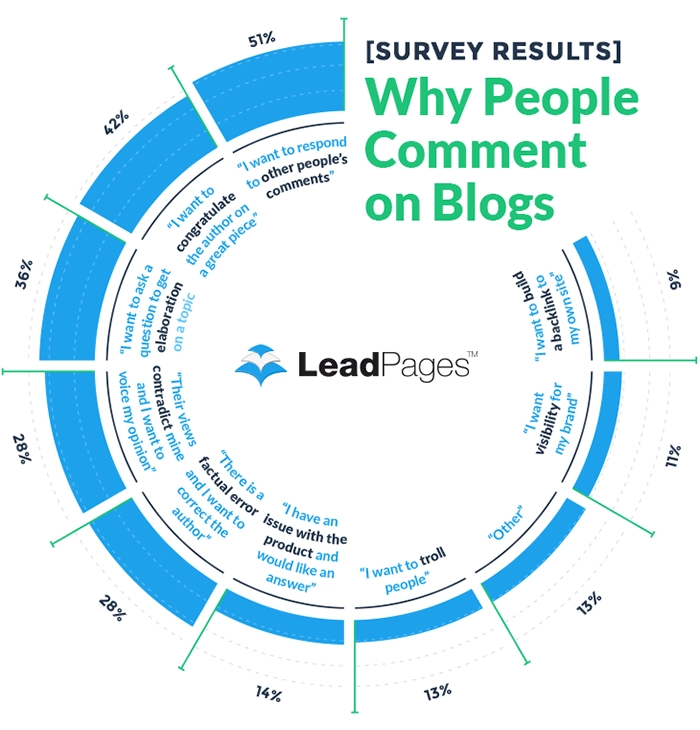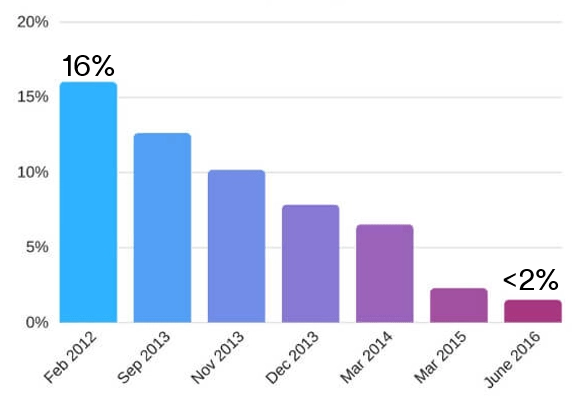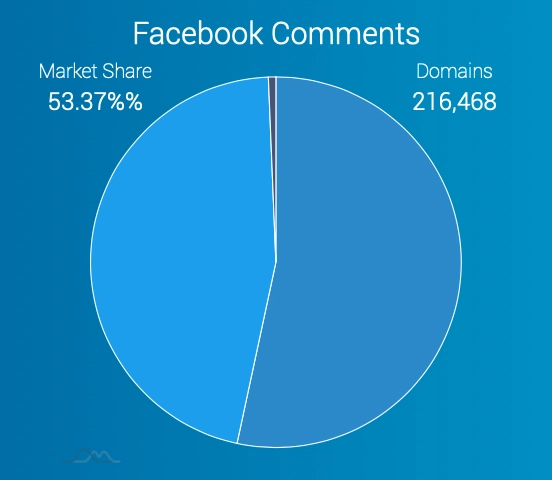Technology has become as pervasive as the air we breathe today. While our reliance on technology keeps on increasing, there is a myriad of problems that complement the acceptance of these solutions for the inconvenience. For instance, social media may have started as a force for good, but it possibly has devolved into a state of dysfunction, one that is all about surveillance capitalism. Likewise, online commenting may have built a degree of community and credibility over the years, but it has also led to a vast array of problems like online toxicity, online disinhibition, and misogyny.
I believe it was Albert Einstein who adroitly stated that — It has become appallingly obvious that our technology has exceeded our humanity. Possible, but this is why checks and balances need to be put in effect to ensure that there is more than just a modicum of control. As more and more people are converted to a digitalized life, there are sure to be more issues that come to the forefront. If there are problems created by technology then technology will create solutions to those problems as well.
The focus of this post is — The Future of Online Commenting. At this particular juncture, let's dissect the current state of online commenting, and its future. But before we do, let's have a basic look at its history.
A Brief Look at the History of Online Commenting
We hear of the whole concept of letters to the editor and even letters that were sent to authors by readers. This was the type of commenting that was present; commenting is reminiscent of the older practice of publishing letters to the editor. With the advent of technology and online platforms plus the death of penmanship, the whole concept of — letters to the editor — has taken on the form of online commentary via enabling comments.
The first online website to offer a comments section was Open Diary, which added reader comments shortly after its launch in October 1998. As the concept of analytics came to the fore, and a larger audience created greater brand value, which resulted in more sales, more and more companies embraced online commenting.

Towards the late 2000s, comment sections were quickly added to news sites. And, it was between 2007 and 2008 that there was a 42% growth in the number of popular news sites with comments sections. In 2008, 75% of the top 100 most popular newspapers in terms of circulation had commenting systems in place. However, in 2010, The American Journalism Review posited that newspapers offer gated comments or do away with comments.
This evolution of commenting is a sign of the times. Many have agonized over the value of the conversations taking place online, but we see with the influx of social media platforms and blogging really taking off that online commenting is here to stay.
Building a commenting system where people would have to comment as their real selves, or moderating a commenting system where people were allowed to continue commenting under a different identity, has become an issue concerning the allocation of resources for many.
The Future of Online Commenting has to Deal with Current Issues
Online commenting and those who are privy to the world of such interactions are well aware of the mental toll that it could have. While most commenting systems do offer the facility of pre-moderation, where all incoming comments are queued to await approval, this seems to be effective only to a certain degree.
Dr. Gina Masullo Chen, assistant professor in the School of Journalism at the University of Texas at Austin, states, "I would rather use techniques that will improve the comment stream...and some of the things that improve them are really strong moderation and pre-moderation." That said there is no doubt that moderators face a serious mental toll in embracing this as a full-time job. The Trauma Floor showcases the issues faced by Facebook moderators, and it is harrowing.
Besides the mental toll that moderating online comments has on its gatekeepers, there is also the specter of misinformation that is looming large and terrifying. We have all heard of the Cambridge Analytica debacle, and now we are faced with so much disinformation spreading via online comments.
In a world that is teeming with so much fake news, like, for instance, regarding Covid-19, it comes as no surprise that organizations desire to one-up their competitors. With a sea chockful of content, organic reach appears to be dying; this is certainly the case with Facebook. This is precisely why aspects like influencer marketing work where brands piggyback on the followers of influencers.
We hear of entities like Bizarrely, which is a team at Microsoft that has released work on an AI bot, called DeepCom. This initiative is used to generate fake comments about news articles. This is the other side of the coin: While technology serves to solve certain problems, there are companies that will utilize technology to generate money. The intention is what counts at the end of the day.

Considering the various online facts regarding the aspect of commenting, you will realize that there are many issues concerning comments so much so that companies like Verge have done away with online comments. News sites are known to be a nefarious cesspit of human thoughts. Yet, the question remains: Does getting rid of comments affect a site's engagement and followership? It does, and yet there are outliers like the National Journal that saw page views increase.
Instead of doing away with online commenting, why not have real-time automated feedback as a solution? Instead of focusing on that age-old advice of Never Read The Comments, let's focus on a solution. Commenting platforms aim to keep toxic conversations stifled with a combination of human guardians and up-to-date technology.
Is the Future of Online Commenting Driven by AI?
The future is here. Instagram is already on the way to using AI to identify and block offensive comments. AI will also remind users that they are typing something offensive. AI tools work to flag and categorize harmful comments before a human can review them, thus helping to manage the workload and decrease toxic content. While there's a possibility to dance around the edges of algorithmic detection, the fact is that this is better than nothing.
The question of impartiality needs to be answered. Esther Berg opines that Instagram has unfairly silenced conservative thoughts. Although this factor is not addressed in the article, one wonders whether this particular intervention was human or non-human. There is something known as adaptive behavior, which ultimately is one of the main concerns in designing AI-focused commenting systems. Basically, commenters can ultimately amend the word. For example, if chocolate is a banned word, it could be written as c h o c o l a t e.
Either way, the fact here is that AI is the future, and there are plenty of statistics to prove this. By 2025, the global AI market is expected to be almost $60 billion. Moreover, the number of AI startups grew 14 times over the last two decades. A comfortable prediction would be that commenting systems will be powered by AI yet with a human overseer.
Just like any technology that is used, the main stakeholders of that particular technology is human. Catering to humans is only possible with humans. AI has come a long way for sure, yet what is missing is the gap between the understanding that lies between both AI and man.
Humans are still the best when it comes to reading, understanding, interpreting, and moderating content. Because of this, businesses that are focused on making their mark in the world will make use of both AI and humans when creating an online presence and moderating content online.
Privacy is a BIG Issue

Many news sites and blogs have chosen to go on a digital dieting strategy with regard to the endeavor of online commenting. This is because while there are too many issues with toxic commentary, there's also the issue of Privacy that needs to be considered.
Most websites and blogs use a third-party commenting system. Suffice to say, the focus of a commenting system is to initiate better conversations. However, the issue here is that systems like Disqus and Facebook Comments track visitors, and harvest their data for advertising purposes. Adding insult to injury, these systems even have the indiscrete ability to know what sites users have visited. What is ironic here is that many companies blindly use these systems at the expense of privacy. Therefore, choosing a GDPR-compliant system is key.
Data that is tracked by Disqus, which may be revealed to third parties, includes pseudonymous analytics data, which includes a user's IP address, their web browser version and installed add-ons, and their referring pages and exit links.
Disqus has also been criticized for publishing its registered users' entire commenting history, along with a list of connected blogs and services, on publicly viewable user profile pages. Of course, there are other issues, too, like the fact that such a system is heavy and can lead to a decrease in page load speed.
Exactly why is data privacy important? It is important to consumers because a breach of personal information can damage an individual’s fundamental rights and freedoms, including the risk of identity theft and other types of fraud.
To maintain customer trust today, a company must demonstrate that data privacy is one of its core values. Indeed, while many businesses still view privacy policies as a forgettable legal routine, there is a change in the consumer’s attitude. Worryingly, as per a PwC research, only 25% of consumers believe most companies handle their personal data responsibly.
There Are Other Concerns
One of the most important reasons human moderators are necessary is because they’re more skilled at reading between the lines. Hidden meanings will sometimes be lost on an AI when in many cases, a human could easily grasp the meaning.
What is critical to note is that while some websites have done away with their commenting systems, some of them have actually brought them back. There is another change happening. This change can be gleaned from an indication given by Seth Godin who stated that he does not have comments on his blog. He believes that it a.) consumes his time, and b.) he feels compelled to clarify every single point.
What's interesting to note is that his social media channels are active; and, the comments on his Facebook page exist. So we will probably see comments migrating to where there's a more relevant audience. Behaviors like dismissive trolling and author abuse are rampant. Taking the example of the Guardian, it should be noted that, unlike many news sites, the Guardian had no plans to close comments with finality. It's interesting how in 2016, 1.4 million comments (2% of the total) have been blocked by Guardian moderators because they violated the Guardian’s community standards.
It is safe to state that improving the aspect of moderation is the future when it comes to online commenting. Such an active decision to improve the facility of online commenting can prevent the death of this wondrous invention altogether.
In Conclusion
Although the prediction still holds true today, Asimov said it best — "The world of AD 2014 will have few routine jobs that cannot be done better by some machine than by any human being. Mankind will therefore have become largely a race of machine tenders."
Technology will keep on evolving incessantly. While humans will tend to their technological counterparts, it won't come as a surprise that there's still a way to go to ensure that online commenting will become a completely human-less task.
Moreover, the issues of toxicity, privacy, and the somewhat warm response to the task of perfect comment moderation need to be gravely looked into. Failure to do so will result in more sites choosing to uninstall their commenting systems. Either way, technology is the key to offering a solution.









Comments